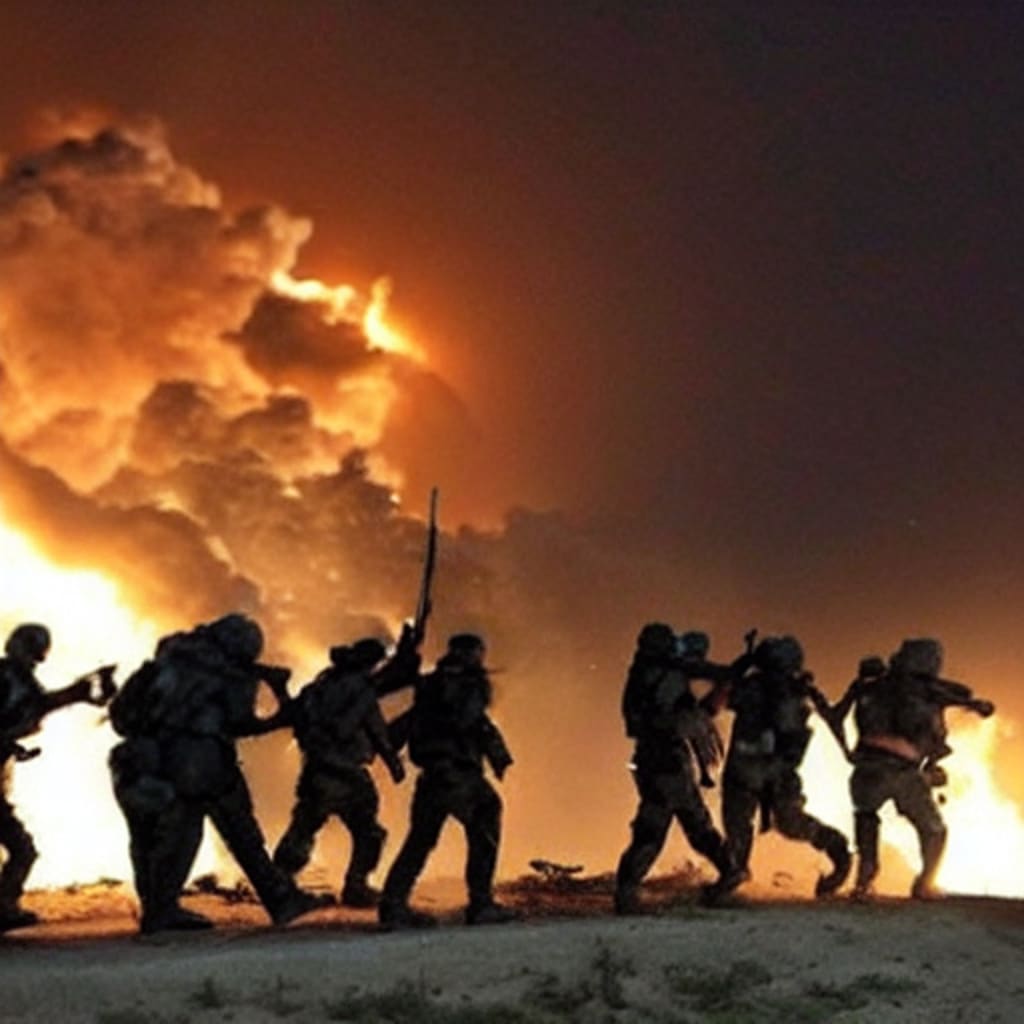What is going to happen in the Hamas Israel war?
the Hamas-Israel conflict is challenging due to the complexity and volatility of the situation.

Predicting the future course of the Hamas-Israel conflict is challenging due to the complexity and volatility of the situation. However, several scenarios and factors can be considered based on historical patterns and current dynamics:
1. **Escalation**: The conflict could intensify, leading to more extensive military operations, higher casualties, and greater destruction on both sides. This scenario often results in significant humanitarian crises and international diplomatic efforts to broker ceasefires.
2. **Ceasefires and Negotiations**: Periods of intense conflict are frequently followed by ceasefires, sometimes brokered by international mediators like Egypt, the United Nations, or other parties. These ceasefires can lead to temporary reductions in violence but often do not resolve underlying issues.
3. **International Involvement**: Increased international involvement, including pressure from global powers and international organizations, can influence the course of the conflict. Sanctions, diplomatic interventions, and peacekeeping efforts might play a role in shaping outcomes.
4. **Internal Dynamics**: Both Israel and Hamas have internal political dynamics that influence their actions. Israeli government policies, public opinion, and military strategy, as well as Hamas's internal politics and alliances, will impact the conflict's trajectory.
5. **Humanitarian Impact**: The ongoing conflict has severe humanitarian implications, including displacement, shortages of essentials, and psychological trauma. International aid organizations often play a crucial role in providing relief and support to affected populations.
The situation is highly fluid, and developments can be rapid and unpredictable. Monitoring reliable news sources and expert analyses can provide ongoing insights into the conflict's progression.
Predicting the outcome of the Hamas-Israel conflict is challenging due to the complexity and volatility of the situation. Several factors will influence the developments and eventual outcome, including:
1. **Military Engagements**: The intensity and duration of military operations from both sides will play a crucial role. Israel's military capabilities are significantly more advanced, but Hamas can leverage guerrilla tactics and has the advantage of operating in densely populated urban areas.
2. **International Diplomacy**: Global reactions and interventions, including those from major powers like the United States, European Union, and regional players such as Egypt and Iran, will impact the conflict. Diplomatic efforts could lead to ceasefire agreements or escalation, depending on the pressure exerted on both parties.
3. **Humanitarian Impact**: The humanitarian situation, particularly in Gaza, where civilians are heavily affected, could influence international opinion and intervention. Humanitarian crises often draw global attention and can lead to increased calls for ceasefire and peace talks.
4. **Internal Politics**: The internal political dynamics within Israel and the Palestinian territories will shape the conflict's trajectory. Changes in leadership, public opinion, and political pressures can lead to shifts in strategy and goals.
5. **Long-Term Objectives**: Both sides have long-term objectives that influence their actions. Israel aims for security and the dismantling of Hamas' military capabilities, while Hamas seeks to resist occupation and assert Palestinian rights. The interplay of these goals will determine the conflict's nature and duration.
Ultimately, the situation remains fluid, and developments can occur rapidly, altering the course of the conflict. It is essential to stay updated with reliable news sources for the latest information.Predicting the exact outcome of the Hamas-Israel conflict is complex due to its deeply rooted historical, political, and social factors. Several potential scenarios could unfold:
1. **Intensification of Conflict**: The conflict could escalate with increased military actions from both sides, leading to higher casualties and widespread destruction. This would exacerbate humanitarian crises in the affected areas.
2. **Temporary Ceasefires**: Periodic ceasefires may be negotiated, often through international mediation. These ceasefires can provide temporary relief but may not lead to a lasting peace.
3. **International Intervention**: Increased international pressure and intervention might push for more sustained peace talks. This could involve significant diplomatic efforts from countries and international organizations.
4. **Peace Negotiations**: Long-term peace negotiations could be initiated, potentially leading to a more permanent resolution. This would require significant compromises from both sides and strong international support.
5. **Status Quo**: The situation could remain largely unchanged, with intermittent flare-ups of violence and ongoing tension without any significant resolution.
The outcome will depend on various factors, including regional dynamics, international involvement, internal political changes within both Israel and the Palestinian territories, and broader geopolitical considerations.
About the Creator
Enjoyed the story? Support the Creator.
Subscribe for free to receive all their stories in your feed. You could also pledge your support or give them a one-off tip, letting them know you appreciate their work.





Comments
There are no comments for this story
Be the first to respond and start the conversation.